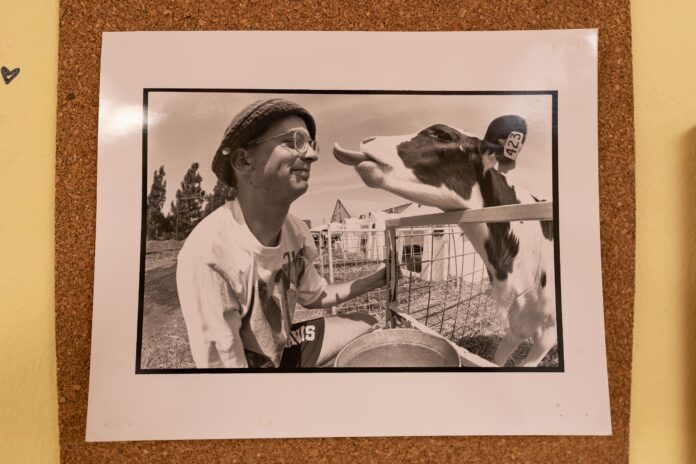Bridging the gap
The ever-changing and unpredictable nature of college culture — especially in the past several decades — brings each generation of college students an entirely new set of challenges and expectations. As a result, today’s college student faces a unique set of demands, far different from those faced by their professors. This disconnect may lead to a lack of understanding between the groups.
Christopher Wallis, a professor in the English department at UC Davis, graduated from Saint Michael’s College in 2004. In his opinion as an educator, today’s undergraduate education is framed more as an avenue toward monetary success and advancement in the workforce. Wallis said that although this aspect of education is important, it’s only a fraction of what the undergraduate experience has to offer in terms of personal growth.
“Of course, job-specific training is a key function of a college education, but it’s not the only one,” Wallis said. “Sometimes this utilitarian thinking can overshadow other, equally important functions, such as social/diversity awareness or developing critical thinking skills for a more nuanced understanding of our worlds.”
Wallis noted that this focus can be detrimental to students’ mental health. He said anxieties associated with today’s measurements of success could potentially impact the well-being of students, but added these are also challenges that many professors may not be able to empathize with.
“The pressure to achieve consistently high marks certainly impacts students’ mental health,” Wallis said. “Professors who overload their students are just a part of the problem. Without systemic changes and ideological shifts, I worry that these pressures will only increase.”
English professor Frances Dolan graduated from Loyola University, Chicago in 1982 and said that the most significant difference between her experience and the experience of students today are the distractions associated with social media and modern technology.
“I think my students have more distractions than I did — I used a manual typewriter in college and did not have a cell phone, computer or email,” Dolan said.
Dolan said, however, that these added distractions can also serve as a considerable advantage for today’s undergraduates.
“Students now have an astonishing wealth of information at their fingertips,” Dolan said. “The challenge is to make the most of the technologies available, while still developing the muscles and skills you need to focus and concentrate and to maintain mastery of those resources.”
Today’s students are not the only ones who have confronted a unique set of battles. Wallis said his college experience was largely impacted by 9/11, a tragedy that many of today’s undergraduates struggle to wrap their heads around.
“Sept. 11 occurred at the beginning of my sophomore year, and so much of my college experience was shaped by this event and its aftermath,” Wallis said. “At first, it was hard to concentrate on classwork since we were all grieving the loss. Over time, though, we learned about coping strategies and techniques for self-care.”
Wallis said his professors were vital in helping him and his peers cope with this event.
“Professors regularly integrated the topic into our classes, which helped us to see more readily the relevance and urgency of our studies,” Wallis said.
There is an undeniable generational and cultural divide between students and professors. If each group made more of a conscious effort to understand and empathize with the other, this gap could shrink — and, according to Dolan, this intention must come from students as much as from professors. She said that, while some professors have unrealistic expectations of students, a majority of perceived academic stress is self-inflicted.
“Communicate with your teachers,” Dolan said. “If you are struggling, let them know and ask for help. Make time to stop by office hours. If you have a problem with a deadline, speak up. The student who speaks up helps everyone in the group and helps me do my job better.”
The disconnect between students and professors is apparent, but it may not be as large as some students perceive it to be. Students may not admit this, but their professors — even their least favorite ones — struggled through their undergraduate career just as they are doing now. Therefore, professors have accumulated tools and resources that may benefit students.
“I recommend a planner that can provide a daily, weekly and monthly view of what needs to be accomplished,” Wallis said. “Also, have a plan for when things go wrong because they will, inevitably.”
Dolan believes it is important for students to recognize that they are not all that different from their professors, adding that understanding this is the first step in bridging that gap between educators and undergraduates.
“Remember you are not alone,” Dolan said. “We are all nervous worriers — including your teachers. The more we all admit it to one another, the better.”
Written by: Miki Wayne — features@theaggie.org




